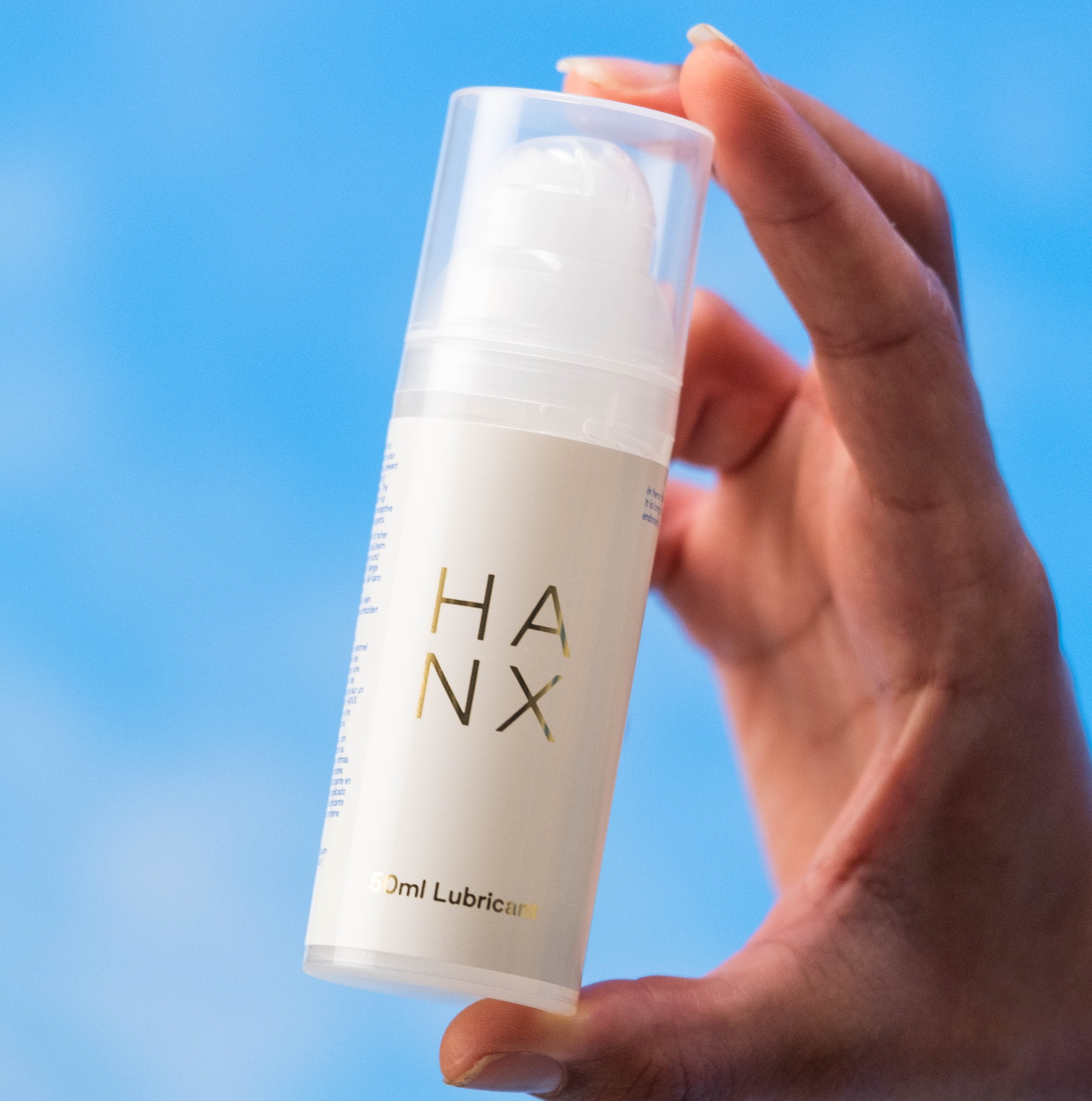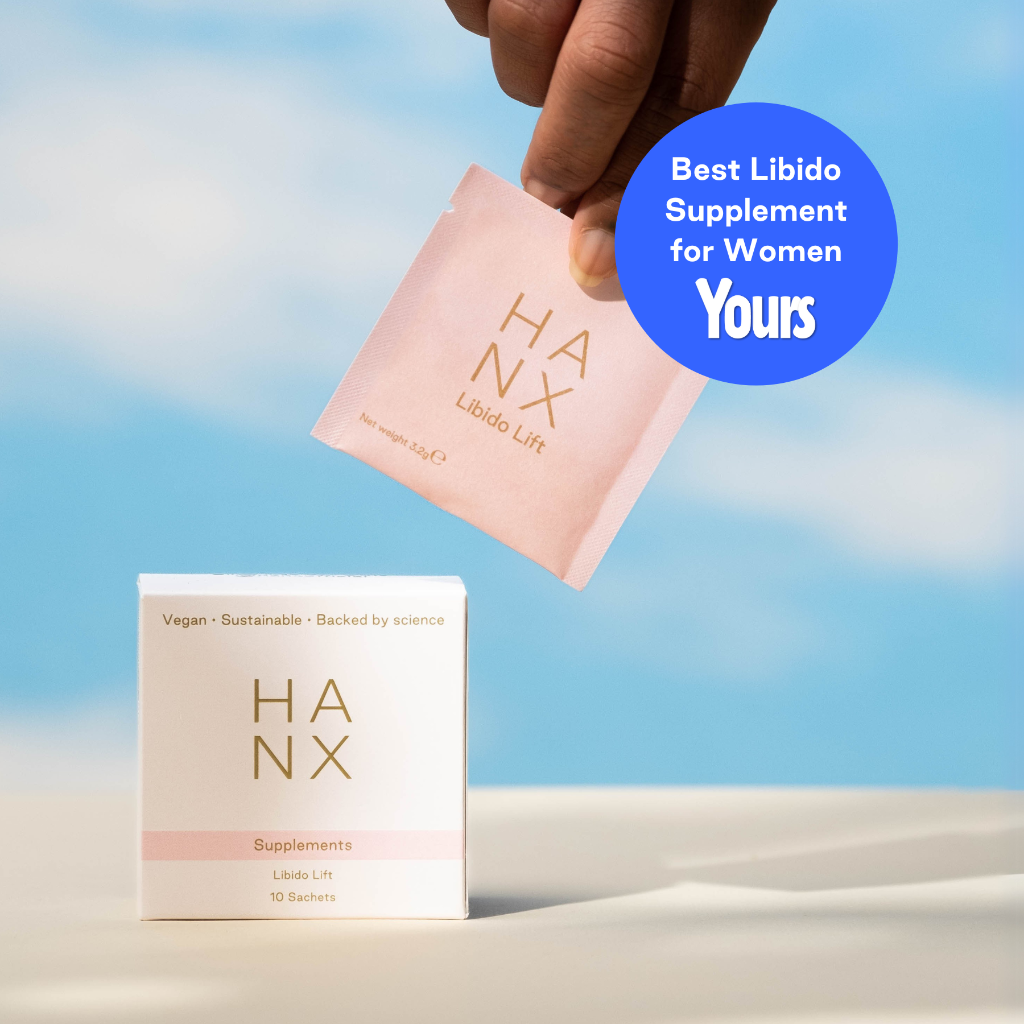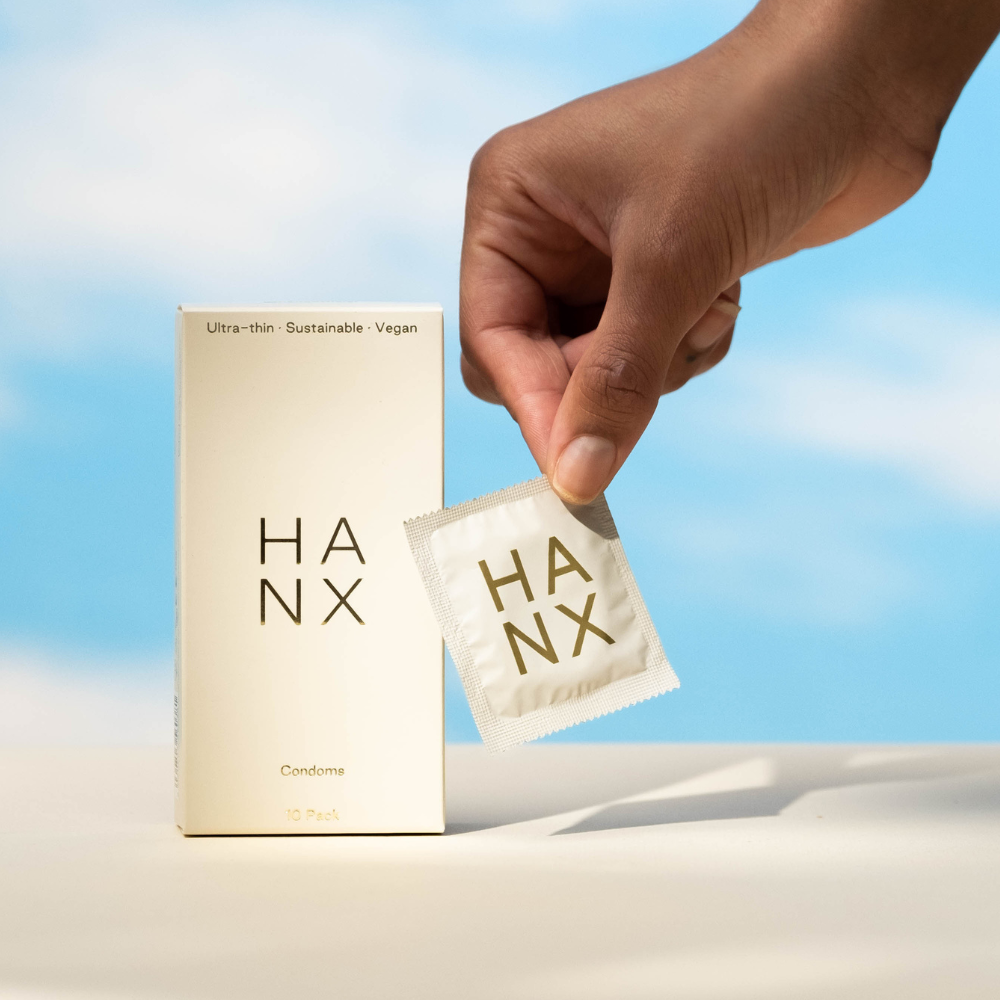Can I Still Squirt After Menopause?
According to Wellbeing of Women’s research, around 13 million people in the UK are in perimenopause or menopausal this very second… and a good chunk of those are probably thinking about sex. One of the persistent myths around menopause is that going through this life stage means that your sex life is effectively over - and our Co-Founder and gynae expert Dr Sarah Welsh, plus plenty of nookie-loving hotties in midlife, can confirm that this simply isn’t true. Face-sitting, doggy style, toys, role play and polyamory: it’s all up for the taking (even if it might feel a little bit different or your desire levels might have changed). So, hormonal horndogs, you’ve slid into our DMs with a very exciting question: can you still squirt after menopause? Over to Dr HANX with a reassuring medical perspective...
What actually *is* squirting?
Ahh, squirting. Sometimes referred to as female ejaculation, this sexual phenomenon has gained notoriety thanks to the popularity of pornography - and discussion about what the hell it actually is. Physically speaking, it’s what we call the release of an odorless, colourless fluid from a vagina during sexual stimulation or orgasm. It might sound like getting wet, but you’ll be able to tell the difference - some people say it feels like a gushing sensation and you can produce a lot of liquid. Not everyone can do it, and if you can, you might not do it every single time you have sex.
Debate rages about what squirting actually is. Research around the topic is limited (as it tends to be when it comes to women’s health and pleasure, grrr), but some studies have found that squirting liquid contains fluid both from the bladder and also from the Skene's Gland, which are two small ducts either side of the urethra. The composition and quantity of the squirting fluid can vary from person to person, with some studies detecting traces of urine in the expelled fluid. However, that doesn’t mean you’re merrily peeing away on your partner/self. Further scientific exploration is needed to fully understand this fascinating, and for many of us, very hot phenomenon.
Can I still squirt after the menopause?
While hormonal changes during menopause can potentially reduce natural lubrication, leading to vaginal dryness, the ability to squirt remains a possibility for some.
- Menopause affects each of us differently, and it may be accompanied by various factors that could influence your ability to squirt. Your overall health, medications you’re currently taking, stress levels, and the impact of hormonal changes on delicate vaginal tissues can all play a factor. If you’re having no luck, consider having a chat in confidence with your GP, health provider or sexual health specialist.
- Get creative. Experiment with various forms of stimulation, including G-spot massage and clitoral play. Whether you’re playing solo or with a partner/s, introducing sex toys can help you. Our mini clit sucker Cindy is getting rave reviews from our community who say “it’s discreet, powerful and lots of fun” - and we reckon it’ll soon have you rivalling the Trafalgar Square fountains…
- Whilst there isn’t concrete evidence that drinking plenty of liquids can lead to squirting, it certainly doesn’t hurt to stay hydrated. Make sure you’re keeping your liquid levels healthy, but also pay attention to your levels of caffeine. UTIs can be common during menopause, and caffeine can further irritate your urinary tract. Try to switch out your latte for a herbal or fruit tea, decaf coffee or low-sugar squash.
- Remember to pop a towel down, or invest in a specially-designed sex blanket (it’s a real thing!) that’s designed to capture liquids.
- If all else fails and you want a little extra splash, try a few pumps of a gentle, water-based lubricant. Avoid using oil-based formulas if you’re using silicone toys or latex condoms, as this can damage or break them down.
Want more?
- Our in-house gynae. Your most-asked menopause questions. Read on.
- Which firms have a menopause policy in place? It’s time to tackle health stigma in the workplace. Find out more.
- Managing the change? Exploring our new all-natural, nutritionally balanced Menopause Support supplement.






















